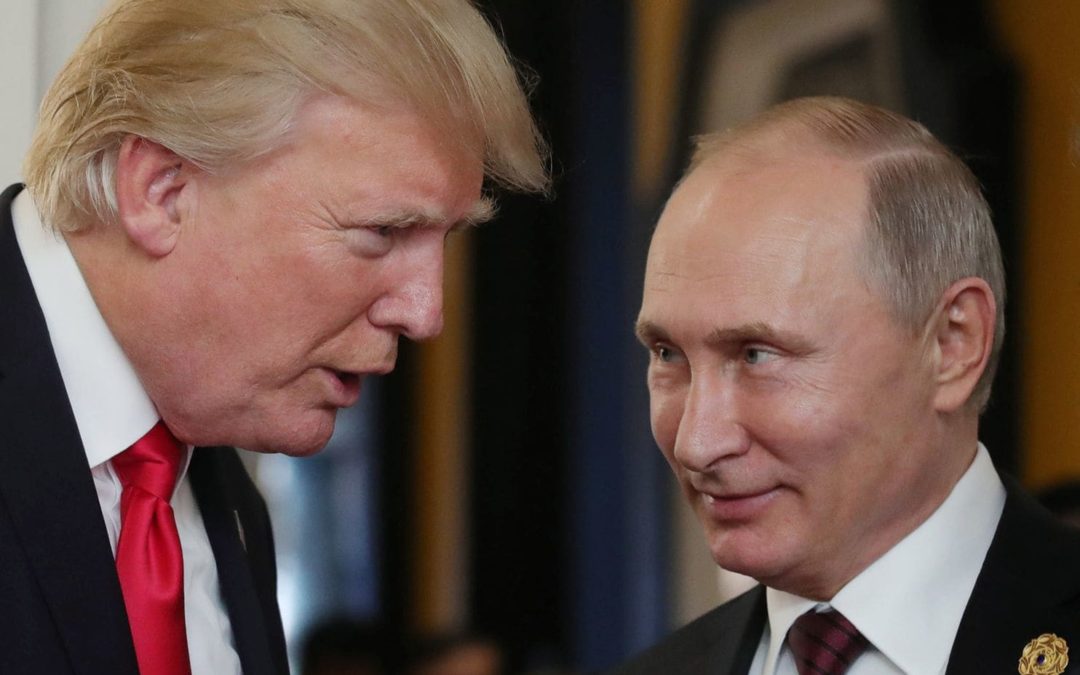In a new interview, President Trump said he did not raise the issue of Russia paying bounties on U.S. troops in Afghanistan during a phone call with Russian President Vladimir Putin last week because the intelligence behind the claim is suspect and he doesn’t believe Russia wants to “get involved” in the region.
“That’s an issue many people said was fake news,” Trump told Axios during a sit-down at the White House on Tuesday. “If you look at some of the wonderful folks from the Bush administration — not any folks of mine — they’re saying it’s a fake issue. There are a lot of people saying it was a fake issue.”
Last month, the New York Times reported that Trump and other top administration officials were briefed earlier this year (and possibly months before that) on intelligence reports showing financial incentives given to Taliban fighters by officials linked to the Russian government to target and kill American troops in Afghanistan.
Although Trump cast the bounty allegation as a media fiction, U.S. intelligence analysts found evidence of the scheme credible.
The intelligence was provided to Trump in a written briefing in February, but it is unclear whether he read it.
In the new interview, Trump said he would have broached the topic with Putin during a recent phone conversation between the world leaders, but he did not believe it was important or credible enough to do so.
“We had a call talking about nuclear proliferation, which is a very big subject,” he said. “They would like to do something and so would I.
“But we did not discuss (the bounties issue.) It never reached my desk, because intelligence (officials) didn’t think it was real. If it had reached my desk, I would have done something about it.”
Numerous Democrats on Capitol Hill have called for additional briefings on the allegations regarding Russian support for the Taliban and Trump’s reaction, saying the issue too serious to ignore.
Trump has long taken pains not to personally criticize Putin, despite generally hostile relations between Washington and Moscow, and even seemed intent on downplaying evidence of broader Russian military and financial support for the Taliban.
Asked about claims to that effect by the former top U.S. general in Afghanistan, Gen. John W. Nicholson Jr., Trump dismissed the notion. “I didn’t ask Nicholson about that,” he said, before saying that the general “didn’t have great success” in his command, which ended in 2018.
In an interview with the BBC in 2018, General Nicholson, then the commander of U.S. troops in Afghanistan, said publicly that the Russians were sending weapons to the Taliban.
Trump also suggested that Russian backing for the Taliban would be a kind of understandable payback for America’s backing of fighters opposing the Soviet occupation of that country during the 1980s.
“Well we supplied weapons when they were fighting Russia too,” Trump said.
Trump also dismissed criticism that he doesn’t spend enough time studying intelligence and military briefings sent to the White House daily.
“I read a lot. I comprehend extraordinary well, probably better than anyone you have interviewed in a long time,” he said.
Ten U.S. service members have been killed in hostile fire incidents in Afghanistan in the last 12 months.
